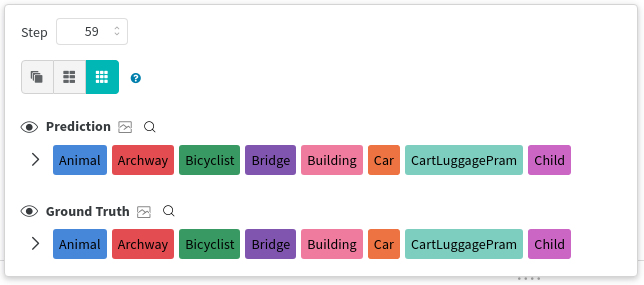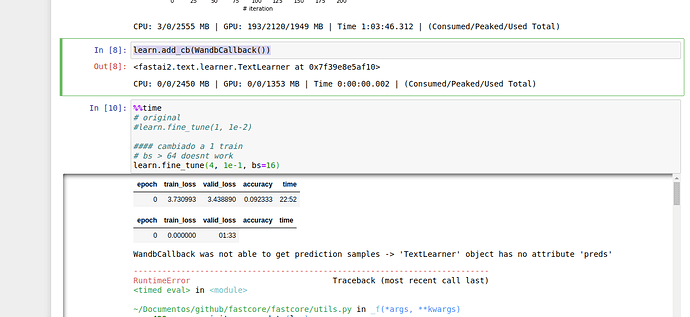Thanks will do that.
And yes, I have the stack trace… becuase I saved it later to try to watch on… but u give some hint just with the error.
epoch train_loss valid_loss accuracy time
0 3.589976 3.483551 0.098774 18:48
epoch train_loss valid_loss accuracy time
0 0.000000 01:37
WARNING:wandb.util:requests_with_retry encountered retryable exception: ('Connection aborted.', OSError("(104, 'ECONNRESET')")). args: ('https://api.wandb.ai/files/tyoc213/trec-covid/t3htw2er/file_stream',), kwargs: {'json': {'complete': False, 'failed': False}}
WandbCallback was not able to get prediction samples -> 'TextLearner' object has no attribute 'preds'
---------------------------------------------------------------------------
RuntimeError Traceback (most recent call last)
<timed eval> in <module>
~/Documentos/github/fastcore/fastcore/utils.py in _f(*args, **kwargs)
429 init_args.update(log)
430 setattr(inst, 'init_args', init_args)
--> 431 return inst if to_return else f(*args, **kwargs)
432 return _f
433
~/Documentos/github/fastai2/fastai2/callback/schedule.py in fine_tune(self, epochs, base_lr, freeze_epochs, lr_mult, pct_start, div, **kwargs)
163 base_lr /= 2
164 self.unfreeze()
--> 165 self.fit_one_cycle(epochs, slice(base_lr/lr_mult, base_lr), pct_start=pct_start, div=div, **kwargs)
166
167 # Cell
~/Documentos/github/fastcore/fastcore/utils.py in _f(*args, **kwargs)
429 init_args.update(log)
430 setattr(inst, 'init_args', init_args)
--> 431 return inst if to_return else f(*args, **kwargs)
432 return _f
433
~/Documentos/github/fastai2/fastai2/callback/schedule.py in fit_one_cycle(self, n_epoch, lr_max, div, div_final, pct_start, wd, moms, cbs, reset_opt)
112 scheds = {'lr': combined_cos(pct_start, lr_max/div, lr_max, lr_max/div_final),
113 'mom': combined_cos(pct_start, *(self.moms if moms is None else moms))}
--> 114 self.fit(n_epoch, cbs=ParamScheduler(scheds)+L(cbs), reset_opt=reset_opt, wd=wd)
115
116 # Cell
~/Documentos/github/fastcore/fastcore/utils.py in _f(*args, **kwargs)
429 init_args.update(log)
430 setattr(inst, 'init_args', init_args)
--> 431 return inst if to_return else f(*args, **kwargs)
432 return _f
433
~/Documentos/github/fastai2/fastai2/learner.py in fit(self, n_epoch, lr, wd, cbs, reset_opt)
201 try:
202 self.epoch=epoch; self('begin_epoch')
--> 203 self._do_epoch_train()
204 self._do_epoch_validate()
205 except CancelEpochException: self('after_cancel_epoch')
~/Documentos/github/fastai2/fastai2/learner.py in _do_epoch_train(self)
173 try:
174 self.dl = self.dls.train; self('begin_train')
--> 175 self.all_batches()
176 except CancelTrainException: self('after_cancel_train')
177 finally: self('after_train')
~/Documentos/github/fastai2/fastai2/learner.py in all_batches(self)
151 def all_batches(self):
152 self.n_iter = len(self.dl)
--> 153 for o in enumerate(self.dl): self.one_batch(*o)
154
155 def one_batch(self, i, b):
~/Documentos/github/fastai2/fastai2/learner.py in one_batch(self, i, b)
157 try:
158 self._split(b); self('begin_batch')
--> 159 self.pred = self.model(*self.xb); self('after_pred')
160 if len(self.yb) == 0: return
161 self.loss = self.loss_func(self.pred, *self.yb); self('after_loss')
~/miniconda3/envs/fastai2/lib/python3.7/site-packages/torch/nn/modules/module.py in __call__(self, *input, **kwargs)
548 result = self._slow_forward(*input, **kwargs)
549 else:
--> 550 result = self.forward(*input, **kwargs)
551 for hook in self._forward_hooks.values():
552 hook_result = hook(self, input, result)
~/miniconda3/envs/fastai2/lib/python3.7/site-packages/torch/nn/modules/container.py in forward(self, input)
98 def forward(self, input):
99 for module in self:
--> 100 input = module(input)
101 return input
102
~/miniconda3/envs/fastai2/lib/python3.7/site-packages/torch/nn/modules/module.py in __call__(self, *input, **kwargs)
548 result = self._slow_forward(*input, **kwargs)
549 else:
--> 550 result = self.forward(*input, **kwargs)
551 for hook in self._forward_hooks.values():
552 hook_result = hook(self, input, result)
~/Documentos/github/fastai2/fastai2/text/models/core.py in forward(self, input)
79 #Note: this expects that sequence really begins on a round multiple of bptt
80 real_bs = (input[:,i] != self.pad_idx).long().sum()
---> 81 o = self.module(input[:real_bs,i: min(i+self.bptt, sl)])
82 if self.max_len is None or sl-i <= self.max_len:
83 outs.append(o)
~/miniconda3/envs/fastai2/lib/python3.7/site-packages/torch/nn/modules/module.py in __call__(self, *input, **kwargs)
548 result = self._slow_forward(*input, **kwargs)
549 else:
--> 550 result = self.forward(*input, **kwargs)
551 for hook in self._forward_hooks.values():
552 hook_result = hook(self, input, result)
~/Documentos/github/fastai2/fastai2/text/models/awdlstm.py in forward(self, inp, from_embeds)
105 new_hidden = []
106 for l, (rnn,hid_dp) in enumerate(zip(self.rnns, self.hidden_dps)):
--> 107 output, new_h = rnn(output, self.hidden[l])
108 new_hidden.append(new_h)
109 if l != self.n_layers - 1: output = hid_dp(output)
~/miniconda3/envs/fastai2/lib/python3.7/site-packages/torch/nn/modules/module.py in __call__(self, *input, **kwargs)
548 result = self._slow_forward(*input, **kwargs)
549 else:
--> 550 result = self.forward(*input, **kwargs)
551 for hook in self._forward_hooks.values():
552 hook_result = hook(self, input, result)
~/Documentos/github/fastai2/fastai2/text/models/awdlstm.py in forward(self, *args)
52 #To avoid the warning that comes because the weights aren't flattened.
53 warnings.simplefilter("ignore")
---> 54 return self.module.forward(*args)
55
56 def reset(self):
~/miniconda3/envs/fastai2/lib/python3.7/site-packages/torch/nn/modules/rnn.py in forward(self, input, hx)
568 if batch_sizes is None:
569 result = _VF.lstm(input, hx, self._flat_weights, self.bias, self.num_layers,
--> 570 self.dropout, self.training, self.bidirectional, self.batch_first)
571 else:
572 result = _VF.lstm(input, batch_sizes, hx, self._flat_weights, self.bias,
RuntimeError: CUDA out of memory. Tried to allocate 102.00 MiB (GPU 0; 7.79 GiB total capacity; 5.68 GiB already allocated; 105.19 MiB free; 5.82 GiB reserved in total by PyTorch)
CPU: 15/20/2590 MB | GPU: 5895/110/7767 MB | Time 0:20:43.136 | (Consumed/Peaked/Used Total)
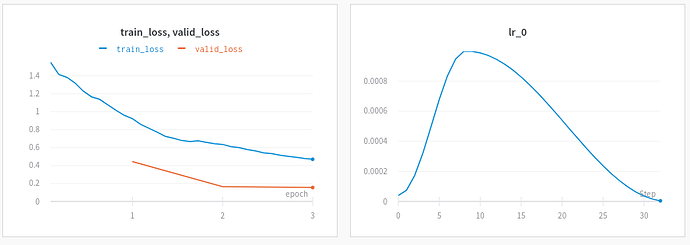
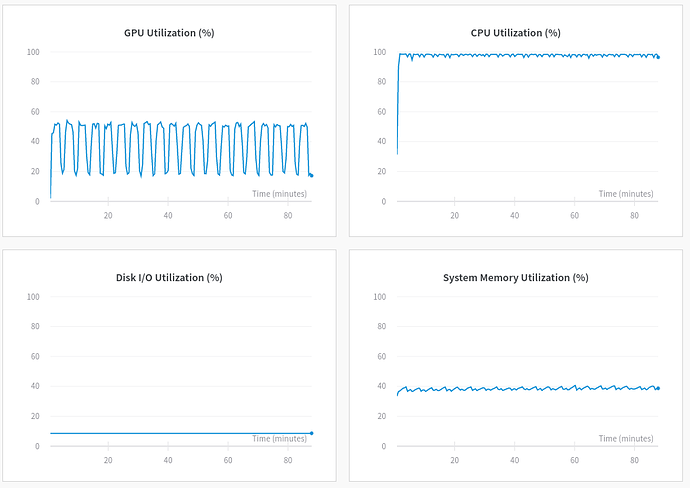

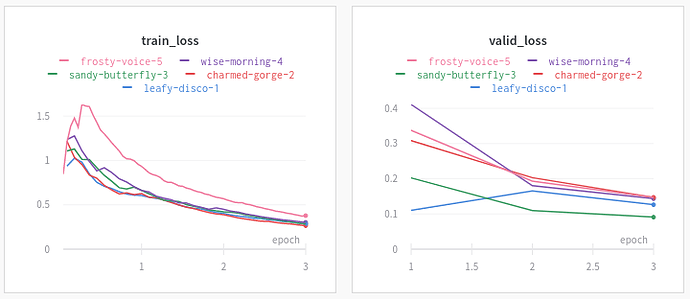
 )
)
